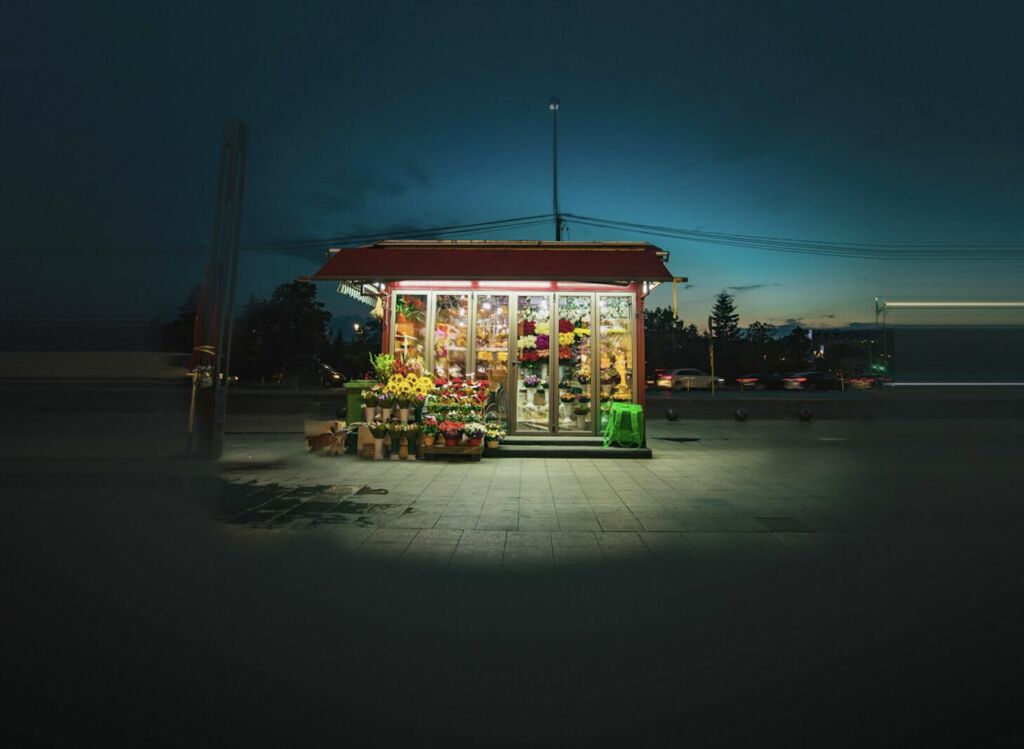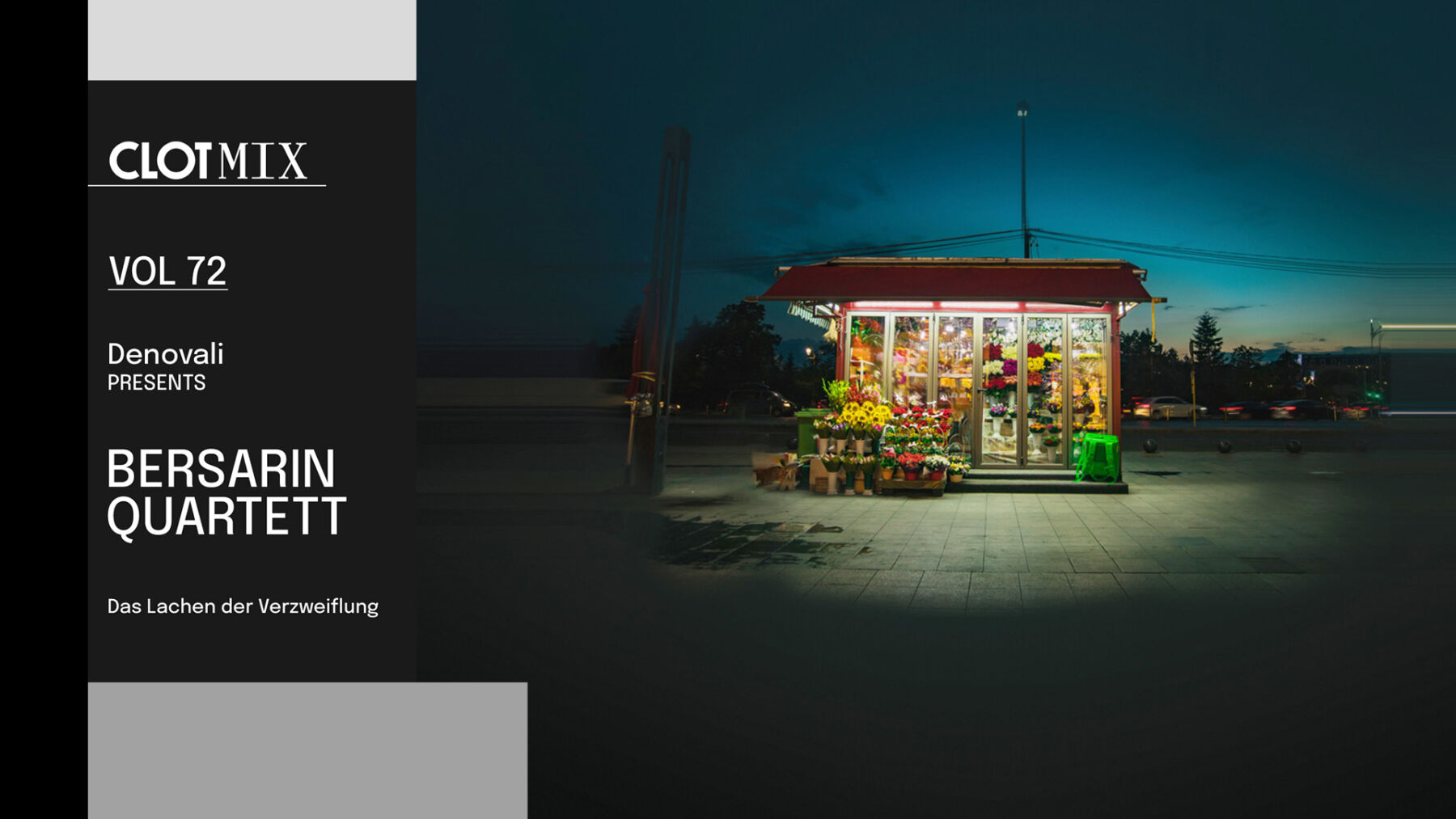Text by CLOT Magazine

Next on our mixtape series is Bersarin Quartett, the solo project of German electronic musician Thomas Bücker, with a delicate selection ranging from film scores, to gaming, and ambient tracks.
Working within the realms of modern classical and ambient music, Bücker has garnered acclaim for his contributions as Bersarin Quartett (which he has been running for over 15 years), notably through his publications with Denovali Records. Bersarin Quartett’s sonic landscapes are distinguished by a fusion of atmospheric textures, electronic nuances, and classical instrumentation, crafting a singular and emotive auditory journey. Bücker’s oeuvre has earned widespread praise for its unique stylistic approach, captivating both ambient and experimental music audiences alike.
A heavy sense of melancholy runs through the Bersarin Quartett sonic core, which Bücker confirms is indeed a big part of the project. The Quartett’s most recent release, Systeme, also released on Denovali, marks its fifth release. It is described as probably the artist’s most intimate and focused sonic narrative.
In this album, melancholy mixed with a sense of distorted alienation or strangeness is described as something that, while it still sounds popularly symphonic here and there, many soundscapes have an observing, almost unmasking effect. Microtonal shifts, polyrhythmic structures, tempo fluctuations, and sound aesthetics torn out of context create a fragile, unpredictable foundation.
The mix he has prepared for us, he mentions, combines many film scores, gaming, and ambient tracks that really impressed and inspired him: First, I sorted the individual tracks by key so they could be mixed together appropriately. Here and there, this even creates completely new soundscapes beyond the original. To present my current album a little more closely, I have interwoven four new Bersarin Quartett tracks!
You started producing music in the late 90ies and later founded your agency, EINS_A, as a graphic and sound designer. How has it evolved throughout the years of your music production?
Of course, a lot has happened technologically in the last 25 years. Initially, I was very limited with an Atari ST and a few MIDI keyboards. Nowadays, there are no limits to creativity—at least from a technical point of view. Any kind of sound is possible—everything is available. This is, of course, a paradise for music production. At the same time, the downside is that you can lose yourself in the endlessness of possibilities. Focusing and (ironically) limiting help me here.
In your new album, Systeme (Denovali 2024), you created melancholic, melodic, ambient music full of deep, immersive environments. What was your creative process like for the album production? Was it different to your previous compositions?
Melancholy is generally a big part of my Bersarin Quartett project. I like the idea that music is an art that can influence and intensify emotions directly. I notice this the most with good film music when image and sound are perfectly coordinated during an interesting story: the emotions are immediately palpable, whether you like it or not. Orchestral strings are still important, even if the current album “Systeme” allows more electronic sounds. Although I always try to maintain a certain musical signature, I’m always keen to develop myself further in sound and arrangement and dare to experiment in new ways.
What were you exploring on the more technical side? Any new equipment that you tried for these productions?
In fact, I now work purely digitally in my DAW. Even though I treat myself to one or two hardware gadgets every few years (most recently, the COBALT 8 synth), I feel more comfortable with all the VST plug-ins. The sound can be precisely adjusted, and the parameters can be automated and subsequently influenced. For “Systeme”, I did the mastering myself for a long time.
Firstly, it was for cost reasons, but also because I wanted to have complete control over the overall sound and dramaturgy of the album right up to the end. Of course, I would have loved to use purely analogue mastering outboard equipment for this – but as I can’t afford the analogue hardware, I had to use plug-in emulations. (The fact that many top Grammy Award-winning sound engineers also master “in-the-box” gave me additional encouragement).
What are your main inspirations for your artistic practice these days?
In addition to movies and games, the great music of other artists inspires me—then and now. Without wanting to copy them 1:1, I’m always happy when tracks and sounds speak to me. But playing around with the latest music software also leads to sources of inspiration that can result in a finished track.
What is your relationship with technology and analogue for your productions nowadays? How do you cope with technology (screen/digital) overload?
There is a bright side (endless possibilities for expression) and a noticeable dark side on the part of current technological developments. Music, design, photography, video, literature, journalism … If AI is now taking over all the creative processes, the question arises: what is my part now? Am I still needed? Am I now the only one who presses this button, and the finished soundscapes come out? Am I just feeding the app algorithms or just typing text-to-music prompts? Am I now the one who selects the finished splice loops?
All these instant possibilities lead to an unmanageable flood of more or less artistic output. Can you still afford to work on an album for 4-5 years? Daniel Ek (CEO of Spotify) said that you have to produce more (!) if you want to survive as an artist … (a rather creepy artistic understanding of music, in my opinion).
Don’t get me wrong: I don’t want to turn back the clocks, but in the so-called “creative industry,” there currently seems to be change on several levels—exciting and worrying at the same time. (I am sure that the struggle for answers will continue in the future.






